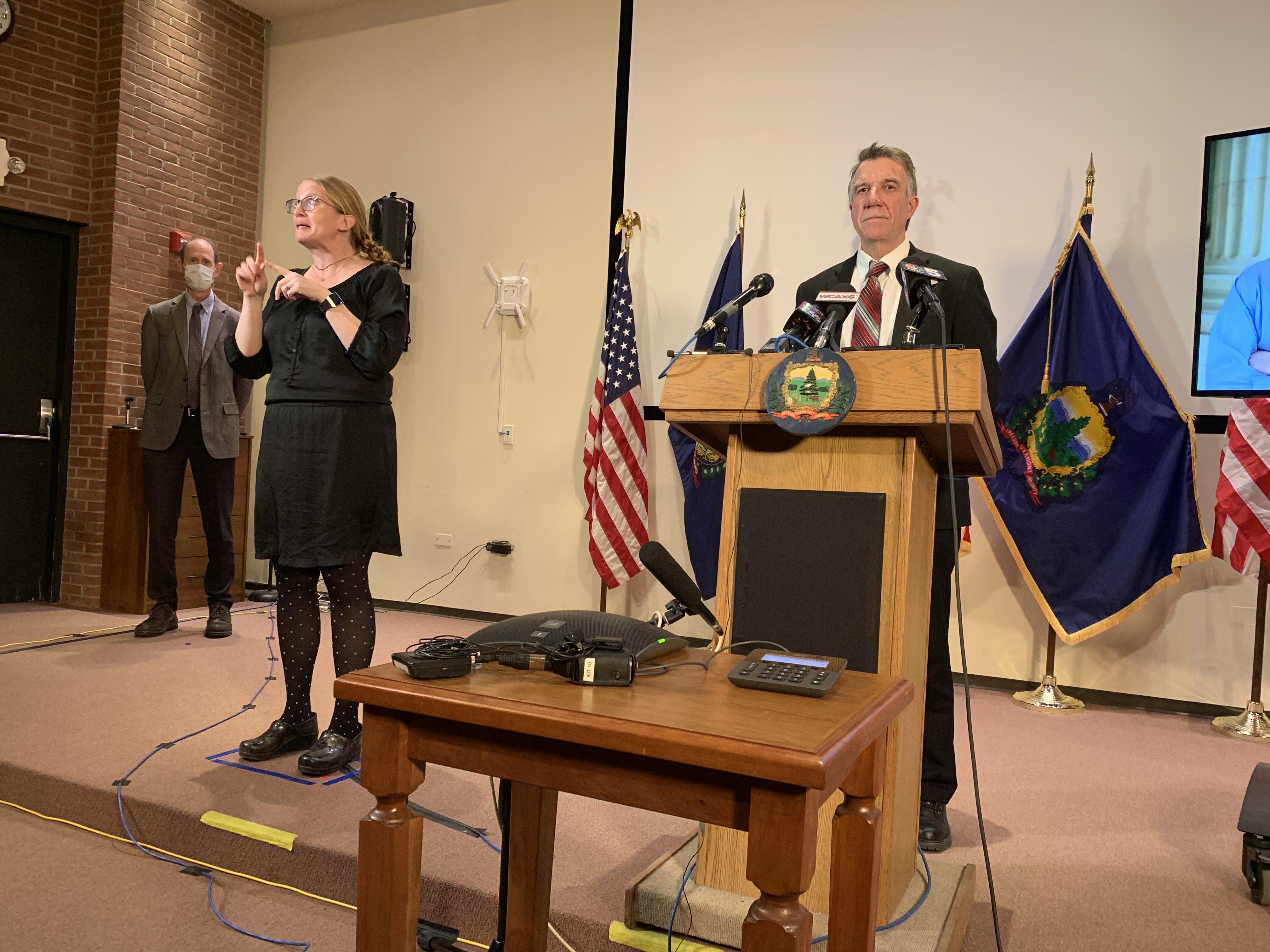Vermont's congressional delegation and advocates for food insecure people are raising questions about a federal program designed to help people afford food during the pandemic, while also delivering income to farmers who lost sales to restaurants and other buyers.
The Vermont Foodbank says thousands and thousands of meals were never provided in September because of delays resulting from an administrative change in contractors for the USDA Farmers to Families Food Box program.
"Suddenly, the Department of Agriculture pulled the rug out from underneath that system," Rep. Peter Welch, D-Vermont, said of a recent decision from the USDA, which swapped the contractor from one located in Vermont to two companies located out of state.
The USDA's Farmers to Families Food Box program saw long lines this summer around Vermont.
The program provided 4.5-million pounds of groceries in Vermont alone from May through August, according to the Foodbank.
During that period, job losses from COVID-19 shutdowns meant the number of food-insecure people in Vermont swelled for a time from 1 in 10 to 1 in 3.
For September and October, Vermont's distribution contract was taken away from Vermont's The Abbey Group, and awarded instead to two out-of-state companies—Costa Fruit & Produce and Sysco.
Problem is, The Abbey Group, which had its price beaten, had set up a system and partnerships ensuring smooth deliveries direct to recipients—even in Vermont's rural counties.
The Vermont Foodbank told NECN and NBC10 Boston it likes both Costa and Sysco, but they simply don't use the same system as The Abbey Group.
The new contract holders really weren't designed to operate in such a small state, where there is limited fridge and freezer space, and where companies' policies on sizes of deliveries conflict with local infrastructure, noted Nicole Whalen of the Foodbank. Additionally, they don't buy from Vermont growers for this program, according to the Foodbank.
More on the Coronavirus in Vermont
The administrative change and resulting delays meant that for September, none of the 16,000 grocery boxes the Foodbank hoped to see distributed was handed out, Whalen said. She was unsure how the federal money that had been allocated will now be spent.
Other food services saw a spike in demand as a result of the contract change from the USDA, according to Whalen.
"During the monthlong gap in the program caused by the USDA, the Foodbank saw record numbers of people visiting one of our other food distribution programs," Whalen said. "Nearly double the usual turnout. People were scrambling for other places to turn. This is a sneak peak at what we are likely to see when the Farmers to Families Food Box program ends for good in the end of October. The additional need for food in our community isn't going anywhere."
Sen. Patrick Leahy, D-Vermont, Sen. Bernie Sanders, I-Vermont, and Rep. Peter Welch, D-Vermont, are now calling on the USDA to somehow make things right.
"This really needs to be reversed," Welch said Tuesday.
A USDA spokesperson said Wednesday that bids for the third round of purchases had to be submitted through a competitive pricing process. That process took into account both recipients’ access to fresh and nutritious food and prospective contractors’ ability to address what is known as the “last mile” of deliveries to food insecure Vermonters, the spokesperson said.
However, advocates for food insecure residents told NECN it appears to them that some bidders from out of state might not have been aware of challenges that “last mile” deliveries entailed in Vermont.
Angus Baldwin, a Cambridge farmer The Abbey Group bought produce from when it held the Farmers to Families contract, said Vermont growers were proud to have a hand in helping their neighbors who were struggling to afford to eat.
"There's definitely an economic barrier to the cost of food for a lot of people," Baldwin said. "And it's a struggle to bridge that gap as local producers."
Baldwin said he hopes future federal contracts take into account local realities—so they work the way they're meant to.



